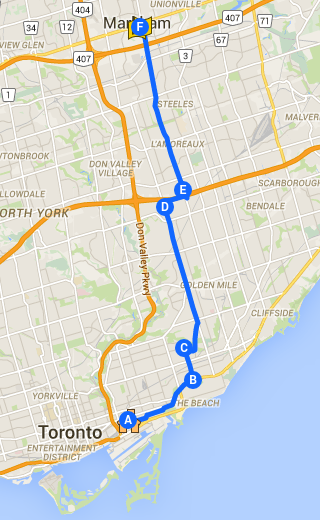This morning, I had a low stress commute through rush hour Toronto traffic. I programmed my GPS navigator, and then mostly decided against its recommendations. My commute time yesterday was about 75 minutes, following the GPS recommendations. Today, the drive was about 60 minutes, using the GPS as a lookahead map of unfamiliar streets, including a serendipitous circumnavigation of a park that I hadn’t previously known.
Negotiating order is a way of governing where one or more parties engage with the environment to coordinate action. An alternative way of governing is social contracting towards legal order (or rules-based order), where parties delegate the directions and constraints of social activity to some (higher) authority, and accede to conditions then pre-established.
Self-organizing is another way of describing negotiating order. A contractualist perspective sees parties engaging in mutual benefit schemes, towards achieving some outcomes that they can not achieve on their own.
The congestion of rush hour traffic is a familiar experience for people in cities. Toronto has a record with the highest Commuter Pain Index in the world. How does a GPS (or possibility one of the future autonomous car) impact the decision on routes for a long commute?
The conventional path from downtown Toronto to Markham is north and then east. An alternative path through arterial city streets is east and then north.
The conventional path is a highway typically clear for the first 10 minutes, placing the driver into a congestion trap.… Read more (in a new tab)
This morning, I had a low stress commute through rush hour Toronto traffic. I programmed my GPS navigator, and then mostly decided against its recommendations. My commute time yesterday was about 75 minutes, following the GPS recommendations. Today, the drive was about 60 minutes, using the GPS as a lookahead map of unfamiliar streets, including a serendipitous circumnavigation of a park that I hadn’t previously known.
Negotiating order is a way of governing where one or more parties engage with the environment to coordinate action. An alternative way of governing is social contracting towards legal order (or rules-based order), where parties delegate the directions and constraints of social activity to some (higher) authority, and accede to conditions then pre-established.
Self-organizing is another way of describing negotiating order. A contractualist perspective sees parties engaging in mutual benefit schemes, towards achieving some outcomes that they can not achieve on their own.
The congestion of rush hour traffic is a familiar experience for people in cities. Toronto has a record with the highest Commuter Pain Index in the world. How does a GPS (or possibility one of the future autonomous car) impact the decision on routes for a long commute?
The conventional path from downtown Toronto to Markham is north and then east. An alternative path through arterial city streets is east and then north.
The conventional path is a highway typically clear for the first 10 minutes, placing the driver into a congestion trap.… Read more (in a new tab)



